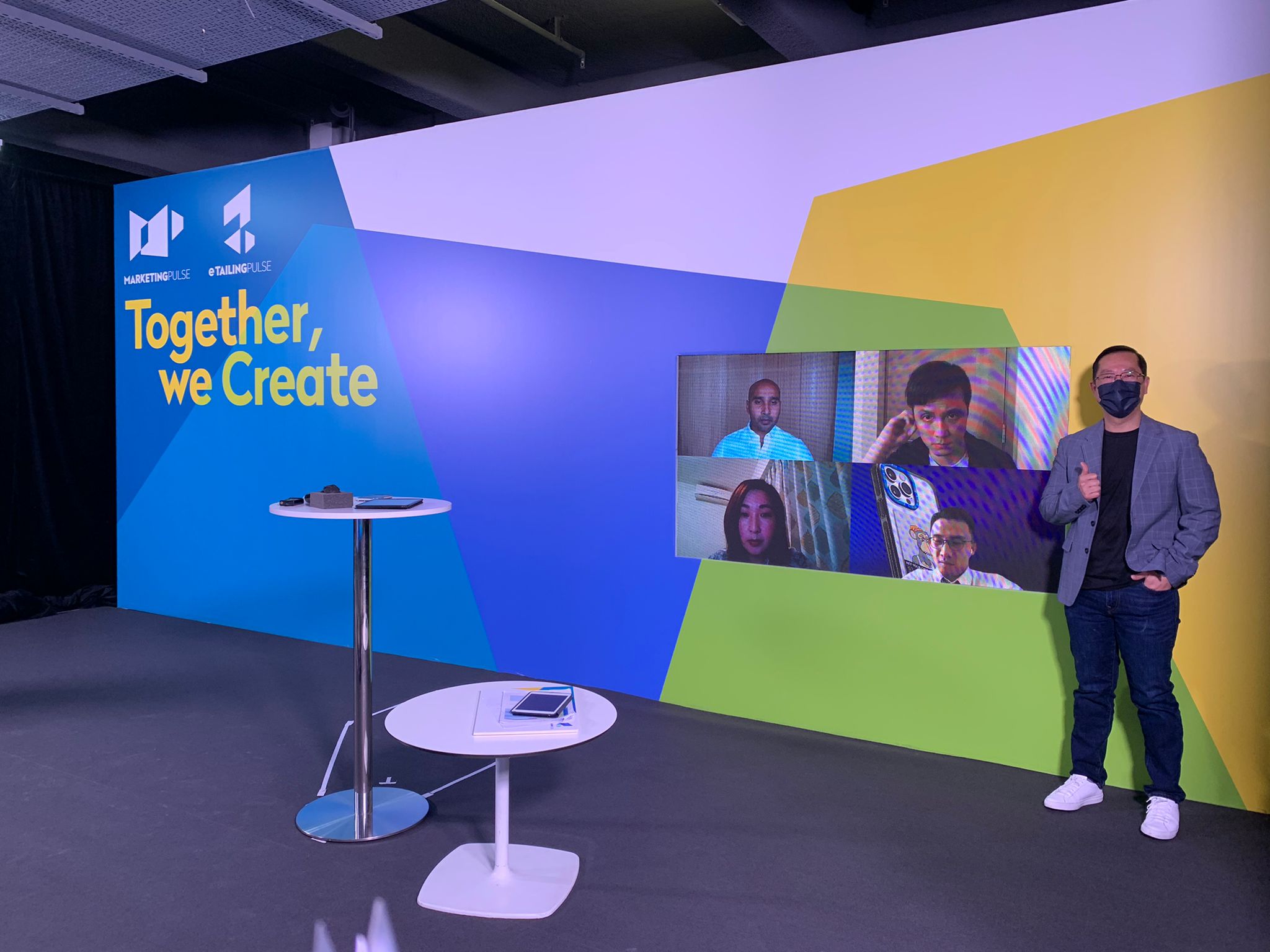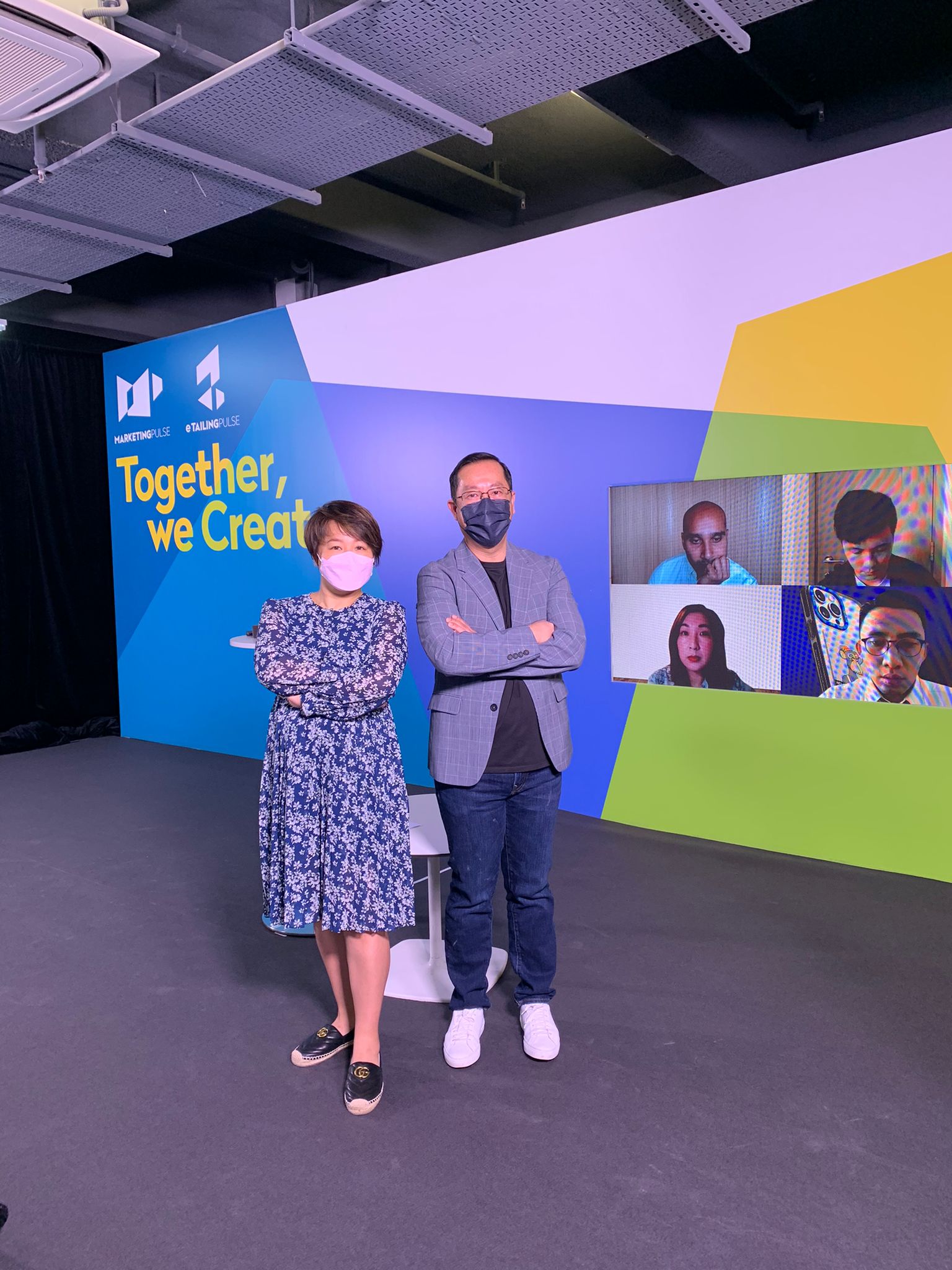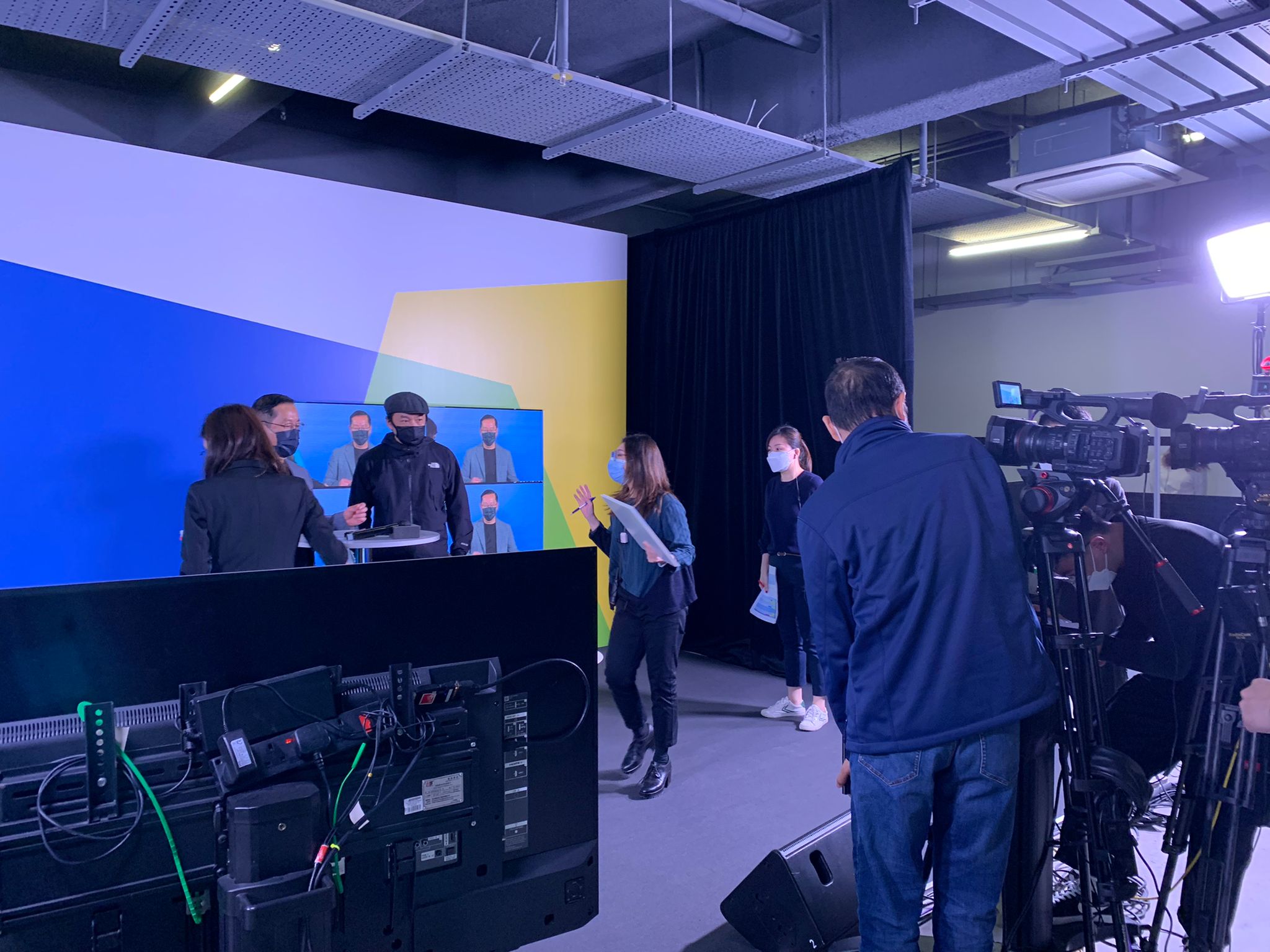MarketingPulse 2022: "Omni-channel strategies: A collision or harmonious marriage?"
Omni-channel strategies – Challenge or Opportunity?
The world never stops changing. Under the pandemic, consumer preferences and behaviours are evolving at a lightning speed. On 17th March 2022, IAB HK collaborated with HKTDC’s Marketing Pulse to host a panel discussion – “Omni-channel strategies: A collision or harmonious marriage?”. It offered insights from representatives of businesses that are born in the mobile commerce age and those that have been leading the market for decades.
Moderated by Mr Kevin Huang (Managing Director of Carousell Hong Kong), the panel featured Mr Roman Khan (Co-founder and President of Peak 21, Board Member and Share Holder of Linjer), Mr Ryan Lai (Managing Director, Foodpanda Hong Kong), Ms Joyce Lui (Chief Digital and Marketing Officer of Loreal Travel Retail), and Mr Wesley Ng (Co-founder and CEO of CASETiFY). The guests shared their experience in the deployment of omni-channel strategies – the combination of online and offline retail - as well as opening up new revenue streams and business ventures amidst uncertainties and tapping into unchartered new territories.


Ways to open new revenue streams
For Peak21’s Roman, their business is online since day 1 and they continue to leverage on e-Commerce. During the pandemic, their online presence is strengthened. As more customers feel comfortable shopping online, Peak 21 accelerates their budgets and spending on these e-Commerce channels.
Foodpanda took a bolder step to tap in areas beyond restaurant delivery services. Partnering with key retailers like Muji and Sasa, Panda Mall offers an online mall and grocery store experience. Pandamart, with warehouses throughout the city, provides our daily necessities 24/7, which as Ryan puts it, directly responds to Hong Kongers’ call for having delivery as fast as possible. With big data, foodpanda can better identify user demands and logistic capabilities.
To L‘Oreal’s travel retail, being customer-centric is the key. Joyce admits that the pandemic makes air travel difficult. Yet, Loreal sees the trend of doing business on digital platforms. A click and collect model was established where travellers can reserve the products bought online and pick them up at the airport.
Interestingly, CASETiFY which started as an online only retailer went against the current and decided to go offline establishing a network of 10 retail shops in Hong Kong and two each in Japan and Korea. They took the advantage of lowered stop rent and better lease terms at the start of the pandemic. Wesley is optimistic about offline retail even if things get back to normal.
Secret recipe to a successful business
Roman acknowledges luck with timing is one of the most important, yet underrated keys to success. They started in e-Commerce at an early stage when the channels are affordable. Besides, picking good categories to develop is also crucial. For instance, Nutrition Kitchen fits right in the time of pandemic when people want to stay healthy during the lockdown. Signals like query base and contextual ads help the business target rising trends.
Being customer-centric is essential for foodpanda. It observes customer behaviour changes like the rising demand for instant service and a wider selection of products. The demand for online delivery is also stronger since people stay home more often during the pandemic.
As for Joyce and Wesley, they both agree there is no silver bullet to success. Loreal, being a company with over 100 years of history, constantly learn and unlearn with the shifting consumer landscape. For CASETiFY, they insist on their core business and reject things that are out of the way. Bearing in mind that being agile is essential, CASETiFY spend loads of resources on investing in their teams' adaptability to risks and unpredictable circumstances.

Synergies and complications when expanding businesses
For Roman, he encourages learning and facilitates conversations between different teams. Prioritizing the brands under the business is also important. Hopefully, with a similar nature of the brands under Peak 21, the management can be more hands-off. There is also a lack of synergy in cross-selling which demands more effort.
Since foodpanda is conducting multiple vertical expansions, they are seeing a benefit in business acumen and market bargaining power. By leveraging their existing platforms that allow merchants to benefit from their instant delivery service, there is undoubtedly synergetic growth.
Having over 30 brands and around 1,000 employees, L'Oreal's strategy is to look at market realities and set clear goals. Instead of downsizing, which a lot of companies do these days, Loreal doubles down on the investment and technology that can enable future growth. An example is Virtual Try-on – consumers can test various products without touching them. This may be a future trend for cosmetic products as consumers prefer a more hygienic way of purchasing products after the pandemic.
To CASETiFY, they emphasize building a brand like your friend. Retail stores are utilized to raise brand awareness. Since CASETiFY has business beyond Hong Kong, they have country managers to oversee both the online and offline profit and loss to ensure different teams do not fight each other.
Failures in businesses
All panellists agreed that their businesses have encountered failures. Still, failures are opportunities that are part of the game where they understand how to get out of the struggle and move on.
Conclusion
In a world where trends are fleeting and preferences are transforming every day, there is indeed no formula that guarantees success for businesses. Still, being consumer-centric is the key to open up new revenue streams whereas being agile to adapt to new circumstances allows businesses to stay strong. More importantly, never be afraid of failures because they are opportunities for businesses to learn, unlearn, and relearn so as to stay relevant among consumers.






